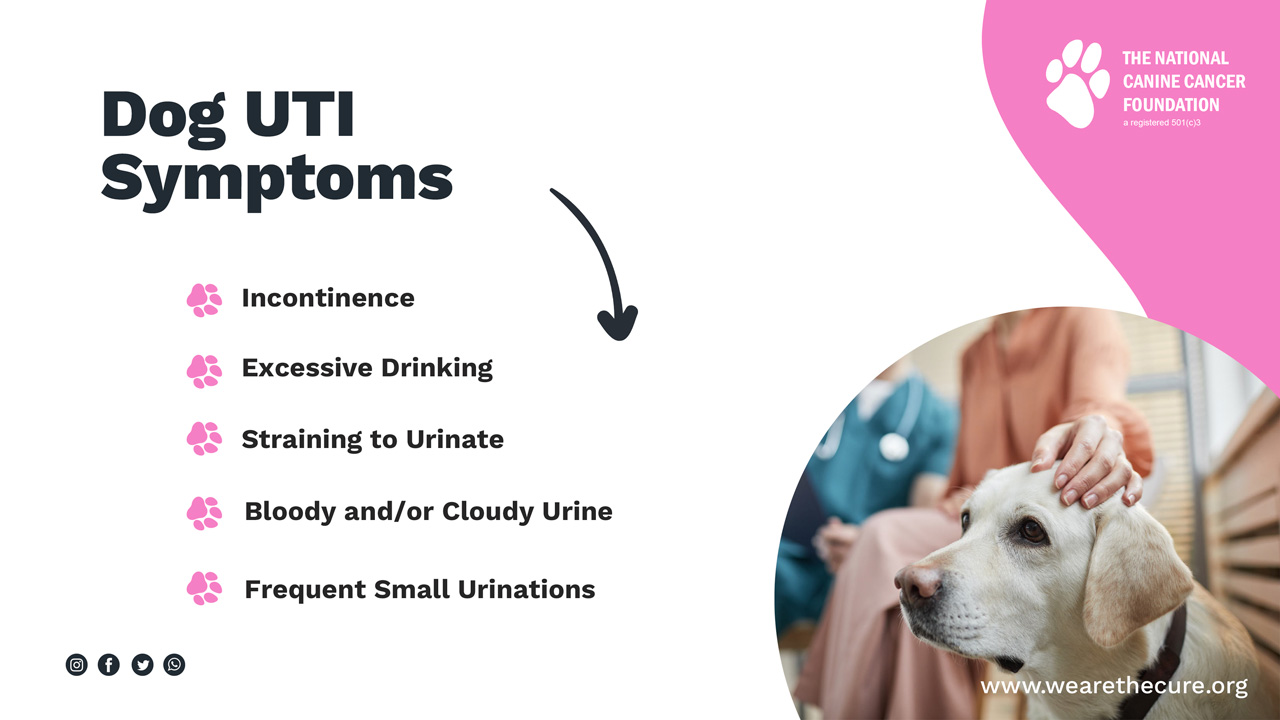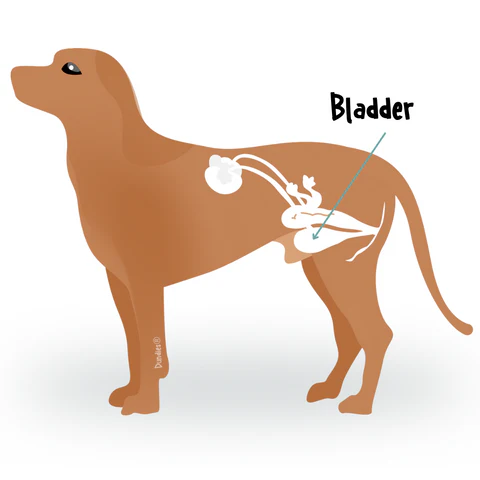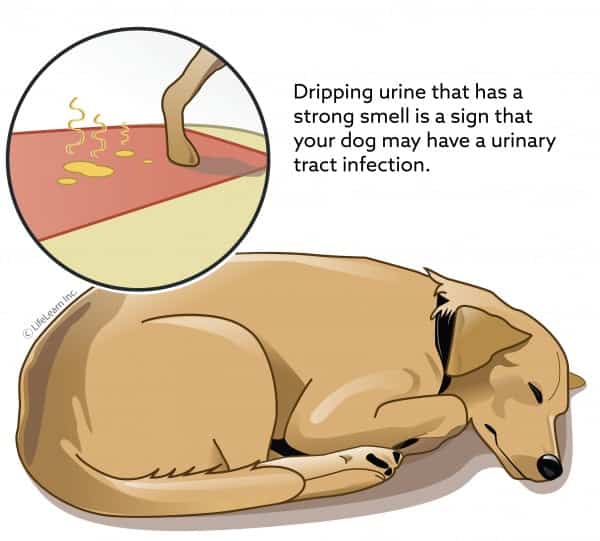7 Effective Home Remedies for Dog UTIs: Quick Relief Guide 2025
Discover how to treat dog UTIs at home with natural remedies like cranberry and hydration tips. Learn when to see a vet for effective care. Ensure your pet’s health today!
Is your furry friend showing signs of discomfort? Urinary tract infections (UTIs) in dogs can be a painful and distressing experience for both pets and their owners. We understand the urgency to provide relief, which is why we’re exploring how to treat dog UTIs at home.
While severe cases may require veterinary intervention, many mild UTIs can be managed with natural remedies. From cranberry supplements to increased water intake, we’ll guide you through effective home treatments that can help soothe your dog’s symptoms. We’ll also discuss when it’s crucial to seek professional help, ensuring your pup receives the best care possible.
Understanding Dog UTIs
Urinary Tract Infections (UTIs) in dogs are bacterial infections that affect the urinary system, including the bladder, urethra, and sometimes the kidneys. These infections are common, with up to 27% of dogs experiencing a UTI at some point in their lives.
Common Causes of UTIs in Dogs
UTIs in dogs typically result from bacteria entering the urinary tract. The most common causes include:
- Bacterial infections: E. coli is the primary culprit, often originating from the dog’s skin or intestines.
- Anatomical issues: Some dogs have congenital abnormalities that increase their risk of UTIs.
- Underlying health conditions: Diabetes, Cushing’s disease, and prostate problems can make dogs more susceptible to UTIs.
- Bladder inflammation: Stress, bladder stones, or debris in the urinary tract can lead to inflammation and subsequent infection.
- Poor hygiene: Lack of proper grooming can allow bacteria to enter the urinary tract more easily.
Female dogs, especially older ones, are more prone to UTIs due to their shorter urethras, which allow bacteria to reach the bladder more easily.
Symptoms of UTIs in Dogs
Recognizing the signs of a UTI in dogs is crucial for early treatment. Common symptoms include:
- Frequent urination: Dogs may need to go out more often than usual.
- Straining to urinate: You might notice your dog taking longer to pee or appearing uncomfortable.
- Blood in the urine: Urine may appear pink, red, or cloudy.
- Accidents in the house: Even well-trained dogs may have trouble controlling their bladder.
- Licking the genital area: Excessive licking can indicate discomfort or irritation.
- Increased thirst: Dogs with UTIs often drink more water than usual.
- Changes in behavior: Your dog may seem more lethargic or irritable.
- Fever: In some cases, dogs with UTIs may develop a fever.
If you notice any of these symptoms, it’s important to consult with a veterinarian for proper diagnosis and treatment.
Diagnosing UTIs in Dogs
Identifying urinary tract infections (UTIs) in dogs requires careful observation of symptoms and professional veterinary diagnosis. We’ll explore when to seek veterinary care and the diagnostic procedures used to confirm UTIs in dogs.
When to See a Veterinarian
Contact your veterinarian immediately if you notice any of these symptoms in your dog:
- Inability to urinate for 12 hours or more
- Straining to urinate without producing urine
- Blood in the urine
- Frequent accidents in the house
- Whining or showing pain while urinating
- Increased thirst and urination
- Recurrence of UTI symptoms within a month of previous treatment
- Underlying conditions like diabetes or bladder stones
- Current use of immunosuppressive drugs
Early intervention is crucial for effective treatment and prevention of complications. Dogs with a history of UTIs or those at higher risk due to existing health conditions require prompt veterinary attention.
Diagnostic Procedures
Veterinarians use several methods to diagnose UTIs in dogs:
- Urinalysis: This initial test examines urine concentration, pH, and presence of bacteria, inflammatory cells, crystals, and other indicators of urinary tract health.
- Urine Culture and Sensitivity Test: Considered the gold standard for UTI diagnosis, this test involves:
- Obtaining a sterile urine sample via cystocentesis
- Incubating the sample on a special medium plate for 1-3 days
- Monitoring for bacterial growth to confirm UTI
- Determining the most effective antibiotic treatment
3. Additional Tests for Chronic UTIs:
- Full blood work
- Imaging studies (X-rays or ultrasounds)
- Further diagnostic procedures to investigate underlying causes
These diagnostic procedures help veterinarians accurately identify UTIs and develop appropriate treatment plans. For dilute urine samples or cases where bacteria aren’t visible in urinalysis, urine culture becomes essential to uncover hidden infections and determine the most effective antibiotics.
Home Remedies for Dog UTIs
Home remedies can be effective for managing mild cases of urinary tract infections (UTIs) in dogs. These treatments focus on promoting urinary health and supporting the body’s natural defense mechanisms.
Increasing Water Intake
Encouraging your dog to drink more water is crucial for treating UTIs at home. Increased water consumption helps flush out bacteria from the urinary tract. Here are effective strategies to boost your dog’s water intake:
- Add low-sodium chicken or beef broth to water to make it more appealing
- Use water fountains or interactive water dispensers to stimulate drinking
- Ensure fresh, clean water is always available
- Switch from dry kibble to wet food to increase overall hydration
- Take your dog for more frequent bathroom breaks to encourage urination
- Consider ice cubes or frozen treats as a fun way to increase water consumption
By implementing these tactics, you’ll help your dog stay hydrated and support their urinary health.
Dietary Changes
Modifying your dog’s diet can significantly impact urinary tract health and aid in managing UTIs. Consider these dietary adjustments:
- Feed a diet that promotes a healthy urinary pH balance
- Incorporate foods rich in antioxidants to boost the immune system
- Reduce sodium intake to prevent water retention
- Include foods high in vitamin C to support urinary health
- Opt for high-quality, easily digestible protein sources
- Avoid ingredients that may irritate the urinary tract, such as artificial additives
- Consider a temporary switch to a prescription urinary diet recommended by your vet
Always consult with your veterinarian before making important changes to your dog’s diet, especially when treating a UTI.
Natural Supplements
Natural supplements can complement other home remedies for dog UTIs. These supplements support urinary health and may help alleviate symptoms:
- D-Mannose: Prevents E. coli from adhering to the urinary tract
- Cranberry supplements: Support overall urinary health
- Probiotics: Promote a healthy balance of gut bacteria
- Omega-3 fatty acids: Reduce inflammation in the urinary tract
- Vitamin C: Boosts the immune system and supports urinary health
- Glucosamine and chondroitin: Support bladder wall health
- Marshmallow root: Soothes inflammation in the urinary tract
Always consult your veterinarian before starting any supplement regimen, as dosages and suitability can vary based on your dog’s size and health condition.
Herbal Remedies
Herbal remedies offer natural alternatives for treating dog UTIs at home. These herbs have antimicrobial and anti-inflammatory properties that may help alleviate symptoms:
- Couch grass: Acts as a diuretic and has antimicrobial properties
- Parsley leaf: Contains antiseptic properties and promotes urinary production
- Echinacea: Boosts the immune system to fight infections
- Uva ursi: Helps combat bacteria in the urinary tract
- Horsetail: Supports urinary health (use cautiously and short-term)
- Goldenseal: Has antimicrobial properties that may help fight UTIs
- Juniper berries: Act as a natural diuretic and have antimicrobial effects
When using herbal remedies, it’s crucial to consult with a veterinarian experienced in herbal medicine. Proper dosage and administration are essential for safety and effectiveness. Monitor your dog closely and discontinue use if any adverse reactions occur.
Lifestyle Changes to Support UTI Treatment
Implementing lifestyle changes can significantly support UTI treatment in dogs. These adjustments focus on promoting urinary health and preventing future infections. Here’s how to create a more UTI-resistant environment for your canine companion.
Maintaining Proper Hygiene
Proper hygiene plays a crucial role in preventing and managing UTIs in dogs. Keep your dog’s genital area clean and dry to reduce bacterial growth. Regularly groom long-haired dogs, trimming excess fur around the urinary opening. After walks or outdoor play, gently clean your dog’s urinary area with pet-safe wipes. For female dogs, wipe from front to back to prevent bacteria from spreading. Maintain a clean living environment by regularly washing your dog’s bedding and cleaning areas where they frequently urinate. These hygiene practices help minimize the risk of bacterial contamination and support your dog’s urinary health.
Increasing Bathroom Breaks
Frequent urination helps flush out bacteria from the urinary tract, reducing the risk of UTIs. Take your dog out for bathroom breaks more often, aiming for at least 4-6 times daily. Encourage complete bladder emptying during these breaks by allowing ample time for your dog to urinate. If you’re away during the day, consider hiring a dog walker or using a doggy door to ensure your pet has regular access to outdoor relief. For older dogs or those with mobility issues, create easily accessible outdoor spaces. Praise your dog after successful bathroom breaks to reinforce positive behavior. By increasing bathroom breaks, you’re actively supporting your dog’s urinary health and aiding in UTI prevention and treatment.
Preventing Future UTIs in Dogs
Preventing urinary tract infections (UTIs) in dogs is crucial for their long-term health and well-being. We’ve compiled effective strategies to help reduce the risk of recurring UTIs in your canine companion.
Maintain Proper Hydration
Adequate water intake is essential in preventing UTIs. We recommend:
- Providing fresh, clean water at all times
- Using water fountains to encourage drinking
- Adding low-sodium broth to water for flavor
- Incorporating wet food into their diet
Regular Bathroom Breaks
Frequent urination helps flush out bacteria. We suggest:
- Allowing 4-6 bathroom breaks daily
- Setting up a consistent schedule
- Using dog walkers or pet sitters if you’re away
Proper Hygiene
Maintaining cleanliness is crucial in UTI prevention:
- Keep the genital area clean and dry
- Regularly groom long-haired dogs
- Clean your dog after outdoor activities
- Use pet-safe wipes for dogs with skin folds
Dietary Considerations
A balanced diet promotes urinary health:
- Feed high-quality, moisture-rich foods
- Consider prescription diets for chronic UTI cases
- Incorporate antioxidant-rich foods
- Avoid excessive amounts of salt and sugar
Nutritional Supplements
Certain supplements can support urinary tract health:
- D-Mannose
- Cranberry supplements (not juice)
- Probiotics
- Omega-3 fatty acids
Address Underlying Health Conditions
Some health issues increase UTI risk:
- Manage diabetes effectively
- Treat Cushing’s disease if present
- Address prostate issues in male dogs
- Monitor and treat bladder stones
Regular Veterinary Check-ups
Routine examinations help catch issues early:
- Schedule annual wellness exams
- Conduct periodic urinalyses
- Follow through with recommended treatments
- Monitor for recurring symptoms
Stress Reduction
Minimizing stress supports overall health:
- Provide a consistent routine
- Ensure adequate exercise and mental stimulation
- Create a calm home environment
- Consider anxiety-reducing products if needed
By implementing these preventive measures, we can significantly reduce the likelihood of future UTIs in dogs. Remember, each dog is unique, so consult with your veterinarian to create a customized prevention plan for your furry friend.
When Home Remedies Aren’t Enough
Home remedies can be effective for mild UTIs in dogs, but there are times when professional veterinary care is essential. Recognizing when to seek medical intervention is crucial for your dog’s health and well-being.
The Role of Antibiotics
Antibiotics play a vital role in treating dog UTIs when home remedies are insufficient. These medications target and eliminate the bacteria causing the infection, providing relief for your furry friend. Veterinarians typically prescribe antibiotics based on the exact bacteria identified through urine culture and sensitivity tests.
Common antibiotics used for dog UTIs include:
- Amoxicillin
- Cephalexin
- Enrofloxacin
- Trimethoprim-sulfamethoxazole
It’s crucial to administer the full course of antibiotics as prescribed, even if symptoms improve. This ensures complete eradication of the infection and reduces the risk of antibiotic-resistant bacteria developing. We always recommend consulting with your veterinarian before starting any antibiotic treatment for your dog’s UTI.
Conclusion
Treating dog UTIs at home requires a balanced approach of natural remedies and professional care. We’ve explored various strategies from increasing water intake to using supplements like cranberry and D-Mannose. While these home treatments can be effective for mild cases they’re not substitutes for veterinary care in severe situations. Remember to monitor your dog closely and seek professional help if symptoms persist or worsen. By combining home care with veterinary guidance we can ensure our furry friends receive the best possible treatment for UTIs promoting their overall health and happiness.



